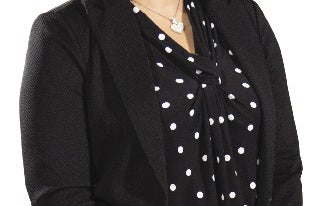Learning things can be challenging, and what is usually more challenging is unlearning.
Get Instant Access to This Article
Subscribe to Worcester Business Journal and get immediate access to all of our subscriber-only content and much more.
- Critical Central Massachusetts business news updated daily.
- Immediate access to all subscriber-only content on our website.
- Bi-weekly print or digital editions of our award-winning publication.
- Special bonus issues like the WBJ Book of Lists.
- Exclusive ticket prize draws for our in-person events.
Click here to purchase a paywall bypass link for this article.
Learning things can be challenging, and what is usually more challenging is unlearning. This is true for me, every day. Years ago, when I came home from nursery school excited about the Thanksgiving dinner narrative between the indigenous people and the pilgrims, looking forward to a role play of Thanksgiving dinner my peers and I would recreate in school the next day, my parents sat me down and told me the truth about the native and white interactions. Ultimately, they told me the truth about the genocide of indigenous people at the hands of the pilgrims, filling in critical historical gaps still not included in many textbooks today.
My heart broke and my stomach sank when I learned the left-out truths. I asked my parents clarifying questions, trying to hold some semblance to the original narrative. I learned over time I had to unlearn many untruthful, white-centered, deceiving, and oppressive narratives, and stop perpetuating them. If you grow up in America, you too were groomed in systems and structures of white supremacy. Letting go of ideas and thoughts that have become congruent with the way we see and navigate the world, can leave us feeling confused, lost, insecure, and scared. Unfortunately, fear drives the thoughts and decisions of most human beings. Fear perpetuates fear and leaves many of us stagnate, if not paralyzed, slowing the rate of change in individuals, groups, organizations, and society.
When we receive new information inconsistent with what we’ve been taught and in contrast to what we believe, it’s important to reconcile this new information, to interrogate what and how we think. How has our access to a broad lens of information been limited? Who taught us what you know? What was the teacher’s lens and breadth of information? When were we taught what we believe? What makes learning and unlearning most difficult, or at least deeply personal, is when our personal culture is challenged. I worked with a school that didn’t want me to change Columbus Day to Indigenous People’s Day publicly on the school calendar, because it would be offensive to the Italians in that community.
Learning about diversity, equity, and inclusion and creating cultural organizational change is often harder to process for anyone raised and schooled in white, Anglo-dominated culture and structures that center whiteness as the exemplar. Ironically, the work of folks in industry, including finance, business, and academia, and particularly STEM-focused areas, is dependent on learning and relearning, on innovation and progress, yet when it comes to integrating and building and honing community work spaces changed or different from what they have been traditionally, more diverse with women, underrepresented communities of color, people with disabilities, other marginalized groups, and inclusive policies and practices, these organizations are struggling to adapt and progress at a rate of change sufficient for competition in a global marketplace.
It is imperative leaders strive for intercultural competence where the goal is to reach an ability to navigate your own and others’ world views in ways to allow us and our colleagues to be more effective. Intercultural competence must be prioritized. This competency allows organizations and institutions to become more flexible, more agile, and better able to adapt, which leads to greater innovation. We must realize the world is not as it is because of what we believe based on our individual cultural lens, rather the world is actualized by our connected multicultural lenses. What is perceived is only greater than what is in organizations that are monolithic and monocultural, and in this multicultural ecosystem, thus near death.
If our views are insular and we create workspaces that are exclusive, we are forcing people with different thoughts and ideas, lived experiences and backgrounds to assimilate, and to leave their most authentic selves at the door, or not to enter these spaces at all.
Bonnie J. Walker, a Worcester resident, is principal diversity & inclusion officer at MIT’s Lincoln Laboratory in Lexington.

